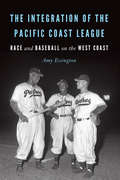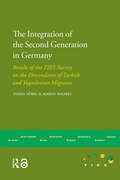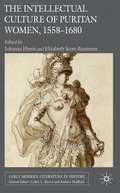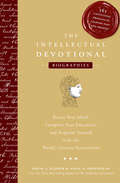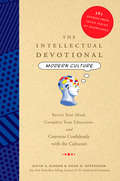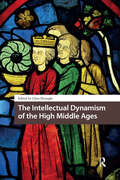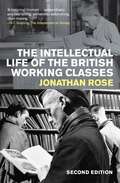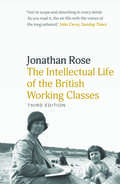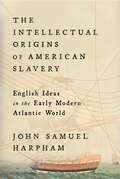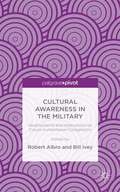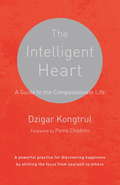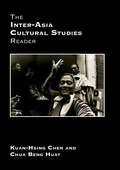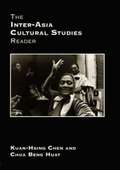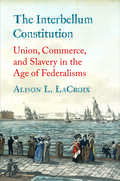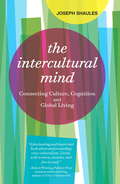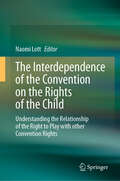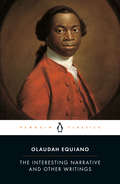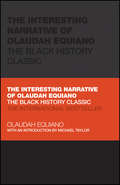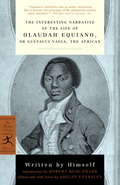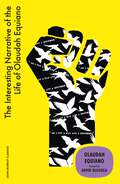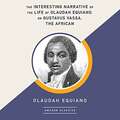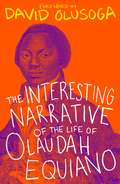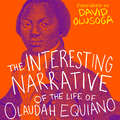- Table View
- List View
The Integration of the Pacific Coast League: Race and Baseball on the West Coast
by Amy EssingtonWhile Jackie Robinson’s 1947 season with the Brooklyn Dodgers made him the first African American to play in the Major Leagues in the modern era, the rest of Major League Baseball was slow to integrate while its Minor League affiliates moved faster. The Pacific Coast League (PCL), a Minor League with its own social customs, practices, and racial history, and the only legitimate sports league on the West Coast, became one of the first leagues in any sport to completely desegregate all its teams. Although far from a model of racial equality, the Pacific Coast states created a racial reality that was more diverse and adaptable than in other parts of the country.The Integration of the Pacific Coast League describes the evolution of the PCL beginning with the league’s differing treatment of African Americans and other nonwhite players. Between the 1900s and the 1930s, team owners knowingly signed Hawaiian players, Asian players, and African American players who claimed that they were Native Americans, who were not officially banned. In the post–World War II era, with the pressures and challenges facing desegregation, the league gradually accepted African American players. In the 1940s individual players and the local press challenged the segregation of the league. Because these Minor League teams integrated so much earlier than the Major Leagues or the eastern Minor Leagues, West Coast baseball fans were the first to experience a more diverse baseball game.
The Integration of the Second Generation in Germany: Results of the TIES Survey on the Descendants of Turkish and Yugoslavian Migrants (IMISCOE Research)
by Inken Sürig Maren WilmesThis report on the German results of the Integration of the Second Generation in Europe (TIES) survey looks at the integration process for secondgeneration inhabitants of Turkish and Yugoslavian backgrounds living in Berlin and Frankfurt. Examining the TIES results, Inken Sürig and Maren Wilmes discuss diverse topics such as educational outcomes, segregation and housing, ethnic and cultural orientations, and social relations.
The Intellectual Culture of Puritan Women, 1558–1680
by Johanna Harris Elizabeth Scott-BaumannThis collection of essays by leading scholars in the field reveals the major contribution of puritan women to the intellectual culture of the early modern period. It demonstrates that women's roles within puritan and broader communities encompassed translating and disseminating key texts, producing an impressive body of original writing.
The Intellectual Devotional: Revive Your Mind, Complete Your Education, and Acquaint Yourself with the World' s Greatest Personalities (The Intellectual Devotional Series)
by David S. Kidder Noah D. OppenheimThe fifth installment of this bestselling series features 365 captivating entries about the most celebrated personalities in history. <P><P>Like its compulsively readable predecessors, The Intellectual Devotional: Biographies is organized into seven categories, one for each day of the week. With their trademark wit and style, authors David Kidder and Noah Oppenheim offer an array of fascinating facts about major figures from Atilla the Hun to Desmond Tutu. <P>In this daily devotional, learn about: <br>• authors and artists, from Homer and Ovid to Oscar Wilde and Virginia Woolf• leaders, such as Queen Elizabeth I, Abraham Lincoln, Susan B. Anthony, and Napoleon Bonaparte <br>• innovators, from Johannes Gutenberg to Isaac Newton to Werner Heisenberg• philosophers, including Socrates, Epicurus, Friedrich Nietzsche, and Jean-Paul Sartre <br>• rebels and reformers, from Joan of Arc and Spartacus to Galileo and Che Guevara <br>• preachers and prophets, including Lao-tzu, John the Baptist, Martin Luther, and Gandhi <br>• villains, such as Benedict Arnold, Genghis Khan, Ivan the Terrible, and Jack the Ripper <P>This volume shares the personal histories, accomplishments,and troubles of 365 people who have left an indelible mark on the world.
The Intellectual Devotional: Revive Your Mind, Complete Your Education, and Converse Confidently with the Cul turati (The Intellectual Devotional Series)
by David S. Kidder Noah D. OppenheimIn the tradition of the instant bestsellers The Intellectual Devotional and The Intellectual Devotional: American History comes the third installment in this indispensable series. <P><P> In The Intellectual Devotional: Modern Culture, authors David S. Kidder and Noah D. Oppenheim explore the fascinating world of contemporary culture to offer 365 daily readings that provide the essential references needed to navigate the world today. <P><P>Quench your intellectual thirst with an overview of the literature, music, film, personalities, trends, sports, and pop references that have defined the way we live. From the Slinky to Star Wars; Beatlemania to Babe Ruth; flappers to fascism—refreshing your memory and dazzling your friends has never been easier, or more fun. <P>Whether you're a trivia genius, pop-culture buff, or avid reader, you'll be riveted by this comprehensive journey through contemporary culture.
The Intellectual Dynamism of the High Middle Ages (Knowledge Communities)
by Clare MonagleThe essays in The Intellectual Dynamism of the High Middle Ages pay tribute to the work and impact of Constant J. Mews, in spirit and in content, revealing a nuanced and integrated vision of the intellectual history of the medieval West. Mews's groundbreaking work has revealed the wide world of medieval letters: looking beyond the cathedral and the cloister for his investigations, and taking a broad view of intellectual practice in the Middle Ages, Mews has demanded that we expand our horizons as we explore the history of ideas. Alongside his cutting-edge work on Abelard, he has been a leader in the study of medieval women writers, paying heed to Hildegard and Heloise in particular. In Mews' Middle Ages, the world of ideas always belongs to a larger world: one that is cultural, gendered, and politicized.
The Intellectual Life of the British Working Classes
by Jonathan RoseWhich books did the British working classes read--and how did they read them? How did they respond to canonical authors, penny dreadfuls, classical music, school stories, Shakespeare, Marx, Hollywood movies, imperialist propaganda, the Bible, the BBC, the Bloomsbury Group? What was the quality of their classroom education? How did they educate themselves? What was their level of cultural literacy: how much did they know about politics, science, history, philosophy, poetry, and sexuality? Who were the proletarian intellectuals, and why did they pursue the life of the mind?These intriguing questions, which until recently historians considered unanswerable, are addressed in this book. Using innovative research techniques and a vast range of unexpected sources, The Intellectual Life of the British Working Classes tracks the rise and decline of the British autodidact from the pre-industrial era to the twentieth century. It offers a new method for cultural historians--an "audience history" that recovers the responses of readers, students, theatergoers, filmgoers, and radio listeners. Jonathan Rose provides an intellectual history of people who were not expected to think for themselves, told from their perspective. He draws on workers' memoirs, oral history, social surveys, opinion polls, school records, library registers, and newspapers. Through its novel and challenging approach to literary history, the book gains access to politics, ideology, popular culture, and social relationships across two centuries of British working-class experience.
The Intellectual Life of the British Working Classes
by Jonathan RoseThis is a landmark intellectual history of Britain&’s working classes from the preindustrial era to the twentieth century. Drawing on workers&’ memoirs, social surveys, library registers, and more, Jonathan Rose uncovers which books people read, how they educated themselves, and what they knew. A new preface addresses the continuing relevance of the book amidst the upheavals of the present day. &“An astonishing book.&”—Ian Sansom, The Guardian &“A passionate work of history. . . . Rose has written a work of staggering ambition.&”—Daniel Akst, Wall Street Journal Winner of the SHARP Book History Prize, the American Philosophical Society&’s Jacques Barzun Prize, and the British Council Prize cowinner of the Longman-History Today Book of the Year Prize for 2001; named one of the finest books of 2001 by The Economist.
The Intellectual Origins of American Slavery: English Ideas in the Early Modern Atlantic World
by John Samuel HarphamA landmark account of the origins of American slavery, revealing how ancient Roman ideas were used to defend the establishment of a slave empire in the English Atlantic world.The period from 1550 to 1700 was critical in the development of slavery across the English Atlantic world. During this time, English discourse about slavery revolved around one central question: How could free persons be made into slaves? John Samuel Harpham shows that English authors found answers to this question in a tradition of ideas that stretched back to the ancient world, where they were most powerfully expressed in Roman law. These ideas, in turn, became the basis for the earliest defenses of American slavery.The Roman tradition had located the main source of slavery in war: enslavement was the common fate of captives who otherwise faced execution. In early modern England, this account was incorporated into studies of the common law and influential natural rights theories by the likes of Hugo Grotius and John Locke. When Europeans started to publish firsthand accounts of Africa in the sixteenth century, these reports were thus received into a culture saturated with Roman ideas. Over time, English observers started to assert that the common customs of enslavement among the nations of Africa fit within the Roman model. Englishmen had initially expressed reluctance to take part in the Atlantic slave trade. But once assured that the slave trade could be traced back to customs they understood to be legitimate, they proved keen to profit from it.An eloquent account of the moral logic that propelled the development of an immoral institution, The Intellectual Origins of American Slavery reveals the power of an overlooked tradition of ideas in the history of human bondage.
The Intellectual and the People in Egyptian Literature and Culture: Amāra and the 2011 Revolution
by Ayman A. El-DesoukyFeaturing chapters from social scientists directly engaged with the process, this volume offers a concise introduction to the U. S. military's effort to account for culture and increase its cultural capacity over the last decade. Contributors to this work consider some of the key challenges, lessons learned, and the limits of such efforts.
The Intelligent Heart
by Dzigar Kongtrul"Dzigar Kongtr l's lively and accessible presentation of the Tibetan training method known as lojong (mind training) focuses on what he considers the heart of that practice: tonglen, the practice of exchanging self for other, for taking in others' pain and suffering and sending out kindness, ease, and consolation. It's a powerful method for developing compassion of the most tranformative kind, and its supreme expression is found in the classic text The Great Path of Awakening by Jamgon Kongtr l. This book is Dzigar Kongtr l's commentary on that beloved text, based on a series of talks he gave on it. It includes his fresh translation of the Great Path, and it is full of his characteristic humor as well as his skill in translating esoteric concepts into terms that not only are easily understood but that speak directly to the heart. "
The Inter-Asia Cultural Studies Reader
by Kuan-Hsing Chen Beng Huat ChuaAsian Cultural Studies or Cultural Studies in Asia is a new and burgeoning field, and the Inter-Asia Cultural Studies Journal is at its cutting edge. Committed to bringing Asian Cultural Studies scholarship to the international English speaking world and constantly challenging existing conceptions of cultural studies, the journal has emerged as the leading publication in Cultural Studies in Asia. The Inter-Asia Cultural Studies Reader brings together the best of the ground breaking papers published in the journal and includes a new introduction by the editors, Chen Kuan-Hsing and Chua Beng Huat. Essays are grouped in thematic sections, including issues which are important across the region, such as State violence and social movements and work produced by IACS sub-groups, such as feminism, queer studies, cinema studies and popular culture studies. The Reader provides useful alternative case studies and challenging perspectives, which will be invaluable for both students and scholars in media and cultural studies.
The Inter-Asia Cultural Studies Reader
by Chua Beng Huat Kuan-Hsing ChenAsian Cultural Studies or Cultural Studies in Asia is a new and burgeoning field, and the Inter-Asia Cultural Studies Journal is at its cutting edge. Committed to bringing Asian Cultural Studies scholarship to the international English speaking world and constantly challenging existing conceptions of cultural studies, the journal has emerged as the leading publication in Cultural Studies in Asia. The Inter-Asia Cultural Studies Reader brings together the best of the ground breaking papers published in the journal and includes a new introduction by the editors, Chen Kuan-Hsing and Chua Beng Huat. Essays are grouped in thematic sections, including issues which are important across the region, such as State violence and social movements and work produced by IACS sub-groups, such as feminism, queer studies, cinema studies and popular culture studies. The Reader provides useful alternative case studies and challenging perspectives, which will be invaluable for both students and scholars in media and cultural studies.
The Interbellum Constitution: Union, Commerce, and Slavery in the Age of Federalisms (Yale Law Library Series in Legal History and Reference)
by Alison L. LaCroixA synthesis of legal, political, and social history to show how the post-founding generations were forced to rethink and substantially revise the U.S. constitutional vision Between 1815 and 1861, American constitutional law and politics underwent a profound transformation. These decades of the Interbellum Constitution were a foundational period of both constitutional crisis and creativity. The Interbellum Constitution was a set of widely shared legal and political principles, combined with a thoroughgoing commitment to investing those principles with meaning through debate. Each of these shared principles—commerce, concurrent power, and jurisdictional multiplicity—concerned what we now call &“federalism,&” meaning that they pertain to the relationships among multiple levels of government with varying degrees of autonomy. Alison L. LaCroix argues, however, that there existed many more federalisms in the early nineteenth century than today&’s constitutional debates admit. As LaCroix shows, this was a period of intense rethinking of the very basis of the U.S. national model—a problem debated everywhere, from newspapers and statehouses to local pubs and pulpits, ultimately leading both to civil war and to a new, more unified constitutional vision. This book is the first that synthesizes the legal, political, and social history of the early nineteenth century to show how deeply these constitutional questions dominated the discourse of the time.
The Intercultural Mind: Connecting Culture, Cognition, and Global Living
by Joseph ShaulesIn this pioneering book, Joseph Shaules presents exciting new research from cultural psychology and neuroscience. It sheds light on the hidden influence of culture on the unconscious mind, and helps people get more out of their intercultural journeys.The Intercultural Mind presents new perspectives on important questions such as: What is culture shock, and how does it affect us? Why are we blind to our own cultural conditioning? Can cultural differences be measured? What does it mean to have an international mindset? Illustrated with a wealth of examples and memorable stories, The Intercultural Mind is a fascinating look at how intercultural experiences can transform the geography of our minds.
The Interdependence of the Convention on the Rights of the Child: Understanding the Relationship of the Right to Play with other Convention Rights
by Naomi LottThe book critically engages with the right to play and other Convention rights to explore their interdependence and interconnectivity. The book brings together experts across various children&’s rights topics and invites them to consider the intersections of their work with the child&’s right to play. It furthers the understanding and implementation of the right to play as this novel area of research develops. The book demonstrates both the interdependence of the rights within the Convention, and the unique and critical role of the right to play in achieving the aims of the Convention and the rights therein. It also extends the theoretical, methodological and critical scope of the discipline by considering children&’s rights in this interdependent manner. The contributions to this edited collection explore the role of the right to play in meeting obligations pertaining to the digital environment, identity rights, education, climate change and environmental health, refugees, girls&’ rights, social protection, healthcare and disability, and vice versa. By drawing together original and creative approaches to a number of pressing social questions and issues relating to human rights, this book has tangible application for developing both the content of the right to play and the potentials of this right for the wider child rights project. Furthermore, this book is pioneering in the field of children&’s rights in two key ways. Not only does it serve to contribute to filling a significant gap in the literature on the right to play, but it also stands as a crucial example of interdisciplinary legal research. Such an approach is critical for the field of children&’s rights due to the nature of childhood and the multidisciplinary relevance of children&’s rights and children&’s issues. This book thus serves as an example to push the field to be more contextual and interdisciplinary.
The Interesting Narrative and Other Writings: Revised Edition
by Olaudah EquianoAn exciting and often terrifying adventure story, as well as an important precursor to such famous nineteenth-century slave narratives as Frederick Douglass's autobiographies, Olaudah Equiano's Narrative recounts his kidnapping in Africa at the age of ten, his service as the slave of an officer in the British Navy, his ten years of labor on slave ships until he was able to purchase his freedom in 1766, and his life afterward as a leading and respected figure in the antislavery movement in England. A spirited autobiography, a tale of spiritual quest and fulfillment, and a sophisticated treatise on religion, politics, and economics, The Interesting Narrativeis a work of enduring literary and historical value.
The Interesting Narrative of Olaudah Equiano: The Black History Classic (Capstone Classics)
by Olaudah EquianoDISCOVER THE INDIGNITIES AND REALITIES OF SLAVERY FROM A CAPTIVATING FIRST-HAND NARRATIVEOlaudah Equiano’s interesting narrative is an astonishing first-hand account of kidnapping, enslavement and eventual emancipation that has horrified and enlightened readers for over 200 years. The Interesting Narrative of Olaudah Equiano is a seminal work in a genre that seeks to help us better shape the present by understanding our violent past.An insightful Introduction from Atlantic slave trade expert Michael Taylor sheds light on Equiano’s life, including his spiritual conversion, his wide travels, and the impact of his writing on the eventual abolition of slavery.
The Interesting Narrative of the Life of Olaudah Equiano
by Olaudah EquianoA remarkable account of early slavery and later freedom, "The Interesting Narrative of the Life of Olaudah Equiano" is the 1789 autobiography of former slave Olaudah Equiano. His life is a tale of terror, as well as an exciting adventure. He tells of his abduction from Africa at the age of ten, and his subsequent years of labor on slave ships. During and after this time, he fervently attempts to gain independence: he studies the Bible and carefully saves his money. After surviving a decade in this way, Equiano is able to purchase his own freedom in 1766. What follows is his success in business, in literacy, and in his outspoken condemnation of the slave trade. Considered an admirable precursor to such slave narratives as that of Frederick Douglass, Equiano's degraded youth and respected later life in England is told with verve and sophistication in this spirited quest for fulfillment.
The Interesting Narrative of the Life of Olaudah Equiano
by Olaudah EquianoWITH A FOREWORD BY DAVID OLUSOGAThis is the extraordinary story of Olaudah Equiano: Child slave. Soldier. Free man. Traveller. Abolitionist. Celebrity. Kidnapped as a child into slavery, Equiano spent the rest of his life fighting for his freedom. After years of slavery, working on ships that carried him across empire and into battle during the Seven Years War, he eventually managed to purchase his own freedom, and went on to become a leading figure in the early abolition movement.Published to coincide with the first attempt to abolish the slave trade in 1789, Equiano's remarkable autobiography became a sensation and turned its author into the most famous Black person in Georgian Britain. As vivid and powerful today as it was in 1789, Equiano's story is the most significant autobiographical account of slavery to emerge from Britain's centuries as a slave trading power. In this JM Classics edition, leading historian David Olusoga's introduction sets Equiano's book in its historical context, helping us to understand the man himself.
The Interesting Narrative of the Life of Olaudah Equiano
by Olaudah EquianoWITH A FOREWORD BY DAVID OLUSOGAThis is the extraordinary story of Olaudah Equiano: Child slave. Soldier. Free man. Traveller. Abolitionist. Celebrity. Kidnapped as a child into slavery, Equiano spent the rest of his life fighting for his freedom. After years of slavery, working on ships that carried him across empire and into battle during the Seven Years War, he eventually managed to purchase his own freedom, and went on to become a leading figure in the early abolition movement.Published to coincide with the first attempt to abolish the slave trade in 1789, Equiano's remarkable autobiography became a sensation and turned its author into the most famous Black person in Georgian Britain. As vivid and powerful today as it was in 1789, Equiano's story is the most significant autobiographical account of slavery to emerge from Britain's centuries as a slave trading power. In this JM Classics edition, leading historian David Olusoga's introduction sets Equiano's book in its historical context, helping us to understand the man himself.
The Interesting Narrative of the Life of Olaudah Equiano, or Gustavus Vassa, the African, Written by Himself (Norton Critical Editions)
by Olaudah Equiano Werner SollorsChosen by the Guardian as one of the one hundred best nonfiction books of all time, Olaudah Equiano’s searing first-person account helped awaken contemporary readers to the nightmare of slavery. <p><p> Olaudah Equiano begins his memoir with reflections on his childhood in West Africa - but that discussion ends abruptly as Equiano and his sister are kidnapped, separated, and sold into bondage. Subsequent sales take Equiano across the Atlantic Ocean to Bermuda, then out to sea, and then back across the Atlantic to England. As a result, Equiano is able to testify to the unfathomable cruelties of eighteenth-century slavery at many stages, including the journey across the Middle Passage, life on a plantation, and the quest for self-emancipation. Equiano eventually purchases his freedom and achieves some success, but his narrative stands as a clear-eyed testimony against the institution of slavery - one that also played an important role in enlisting readers all over the world in the cause of abolition.
The Interesting Narrative of the Life of Olaudah Equiano: With a foreword by David Olusoga
by Olaudah EquianoEquiano's narrative is the most significant autobiographical account of slavery to emerge from Britain's centuries as a slave trading and slave owning power. It remains as powerful today as it was when first published in 1789.It tells the story of Equiano's remarkable life, recounting his years of slavery, working on ships that carried him across the empire and into battle during the Seven Years War, and the extraordinary story of how he was able to purchase his own freedom. Travelling to Britain as a free man Equiano settled in London and there became a leading figure in the early abolition movement.The publication of his narrative was carefully timed to coincide with the first attempt to abolish the slave trade. Describing his own experiences of slavery as both victim and witness, the book became a sensation and its author the most famous black person in Georgian Britain.In this new edition, leading historian David Olusoga sets the book in its historical context helping us to understand this complex, spiritual, politically astute and deeply passionate man. Although Equiano did not live to see the abolition of the slave trade or slavery his voice was critical to that that long campaign.
The Interesting Narrative of the Life of Olaudah Equiano: With a foreword by David Olusoga
by Olaudah EquianoEquiano's narrative is the most significant autobiographical account of slavery to emerge from Britain's centuries as a slave trading and slave owning power. It remains as powerful today as it was when first published in 1789.It tells the story of Equiano's remarkable life, recounting his years of slavery, working on ships that carried him across the empire and into battle during the Seven Years War, and the extraordinary story of how he was able to purchase his own freedom. Travelling to Britain as a free man Equiano settled in London and there became a leading figure in the early abolition movement.The publication of his narrative was carefully timed to coincide with the first attempt to abolish the slave trade. Describing his own experiences of slavery as both victim and witness, the book became a sensation and its author the most famous black person in Georgian Britain.In this new edition, leading historian David Olusoga sets the book in its historical context helping us to understand this complex, spiritual, politically astute and deeply passionate man. Although Equiano did not live to see the abolition of the slave trade or slavery his voice was critical to that that long campaign.
The Interesting Narrative of the Life of Olaudah Equiano: With a foreword by David Olusoga
by Olaudah EquianoThe classic memoir of an 18th-century British former slave, and leading figure in the abolitionist movement, Olaudah Equiano. Introduced by David Olusoga, author of the highly acclaimed Black and British.Kidnapped and sold into slavery at the age of ten, Olaudah Equiano's memoir caused a sensation when it was first published in 1789. The Interesting Narrative of the Life of Olaudah Equiano is the true story of his life, from his ten years of service as a slave in the British Navy to his experiences - after having purchased his freedom twice - as a freed black man living in eighteenth-century England. Equiano would go on to be a leading figure in the anti-slavery movement, boosted by the success of his memoir, which became a bestseller and went through nine editions in his lifetime.This new edition of the landmark memoir features a foreword by historian and bestselling author David Olusoga (Black and British), bringing this long-overlooked classic back into the spotlight, and showing his importance, which has been too often neglected, for the story of the abolition of slavery in Britain.(P) 2021 Hodder & Stoughton Limited
